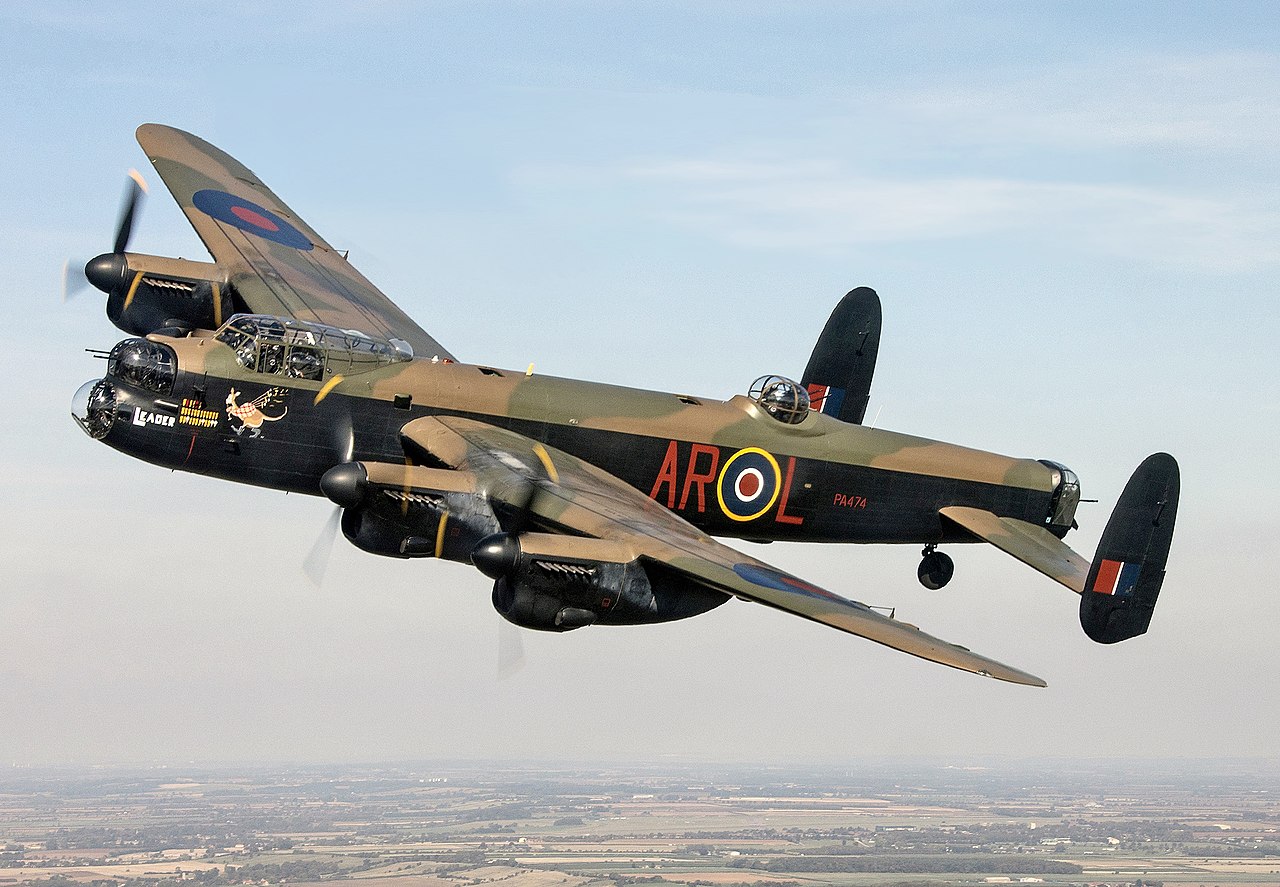On a cold March night in 1944, a British airman jumped out of a Lancaster bomber at an altitude of 18,000 feet. His aircraft was crippled and he was forced to jump. This doesn’t seem too unusual among the thousands of airmen who found themselves in similar situations during WWII, but this particular crewman’s story was unique. He jumped without a parachute.
After falling for over a minute, Nicholas Alkemade survived the landing with just a broken leg. The story of his survival has been spoken about ever since.
Nicholas Alkemade
Alkemade was born in North Walsham, Norfolk on December 10, 1922. Before the war, he worked a humble job as a market gardener in Loughborough, but after the war broke out he joined the RAF. When he completed his training he was assigned to No. 115 Squadron as a rear gunner on an Avro Lancaster bomber, which he and his fellow crewmembers named “Werewolf.”
Werewolf
Werewolf had completed 14 missions when it departed for Berlin on March 24, 1944. The aircraft left RAF Witchford in Cambridgeshire with her crew of seven just before 7 pm.
The aircraft successfully completed the trip to Berlin and started the long journey home, but bad timing would soon cause a catastrophe. The group of returning bombers were battered by strong northern winds and were pushed south. As a result, the aircraft ended up flying over the heavily defended Ruhr.
While over Germany, Werewolf came under attack from a German Ju 88 night fighter. Cannon and machinegun fire from the Ju 88 battered the Lancaster’s starboard side and started a fire that ran almost the entire length of the aircraft.
The perspex surrounding Alkemade’s turret was blown off and he was blasted by the ice-cold air rushing past the bomber.
After a brief wrestle with the stricken aircraft, the pilot, James Newman, gave the order to bail out. This was no easy task for Alkemade though, as the Lancaster’s rear turret was too small to accommodate a gunner and his parachute. Alkemade would have to enter the rear section of the Lancaster and grab it; essentially an impossible situation for a bomber rapidly falling out the sky.
When he opened the turret doors he was faced with a fiery inferno in the fuselage that prevented him from reaching his parachute, which was burning anyway. His own uniform began to burn, so he closed the turret doors. This brief moment of safety was interrupted when the turret’s hydraulic fluid caught alight, spraying him with liquid fire.
Alkemade now only had two choices: stay in the aircraft or jump. Both guaranteed death. He chose to jump.
No parachute, no problem
Alkemade later described what went through his head:
“I had the choice of staying with the aircraft or jumping out. If I stayed I would be burned to death – my clothes were already well alight and my face and hands burnt, though at the time I scarcely noticed the pain owing to my high state of excitement…I decided to jump and end it all as quick and clean as I could. I rotated the turret to starboard, and, not even bothering to take off my helmet and intercom, did a back flip out into the night. It was very quiet, the only sound being the drumming of aircraft engines in the distance, and no sensation of falling at all. I felt suspended in space. Regrets at not getting home were my chief thoughts, and I did think once that it didn’t seem very strange to be going to die in a few seconds – none of the parade of my past or anything else like that.”
Burnt, descending at a speed of 120 mph and expecting death, Alkemade lost consciousness at some point during the fall.
But miraculously, Alkemade awoke three hours later in a pile of snow. Above him were the stars glistening in the frigid night. He lit a cigarette and checked himself over, realizing that apart from a twisted knee, some bruises, and the burns he received in Werewolf, he had survived the fall completely unscathed. Not bad for a 3.4-mile fall.
He had landed on a pile of snow about 18 inches thick in a small fir forest. This was an amazing stroke of luck, as the group of trees had protected the snow from the sun. Only around 20 feet away was clear ground with no snow. The fir tree branches also helped to slow down his descent.
Nevertheless, Alkemade was still injured and couldn’t walk so he bravely gave a blast of his whistle and hoped help would come his way. He was soon found by some German civilians who got him medical treatment.
Naturally, the Gestapo arrived and interrogated the British airman, who they suspected of being a spy since he had no parachute. He insisted that he had fallen without one, but understandably they refused to believe him. He told the Gestapo to find his parachute harness near where he landed. This would prove that no parachute had been used while attached to it. They found the harness and the wreckage of the bomber, which still held the remains of his parachute.
Afterward, Alkemade became a minor celebrity in the prisoner of war camps he was held in. He survived the war and returned to civilian life, working at a chemical plant. While here he was involved in a number of extremely close calls.
Want War History Online‘s content sent directly to your inbox? Sign up for our newsletter here!
Instead of dying on impact with German soil, Nicholas Alkemade passed away in June 1987.
